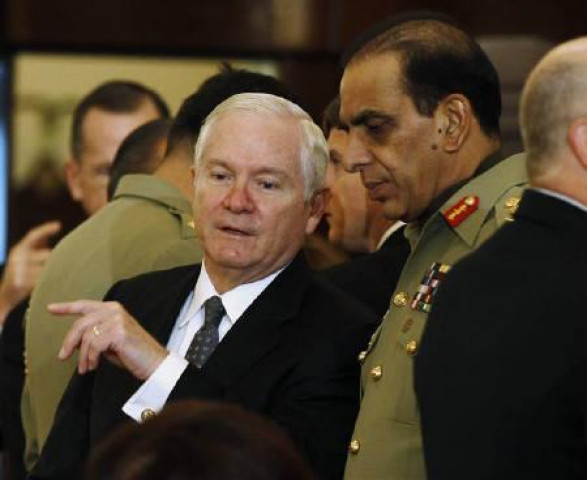US officials say ISI, CIA relationship strained
Officials say ties hit a low point when CIA was forced to withdraw its top officer from Pakistan.

"We may be in a bit of a trough at the moment," said a US official who follows the critical partnership between the US Central Intelligence Agency (CIA) and the Inter-Services Intelligence (ISI) Directorate closely.
Relations between the US Central Intelligence Agency (CIA) and the Inter-Services Intelligence (ISI) Directorate, Pakistan's principal spy unit, have long been buffeted by tensions over CIA allegations that the Pakistani agency has links to militant groups.
US authorities believe some of these groups are linked to anti-American militants, including al Qaeda and the Taliban.
The officials, who are familiar with US military and intelligence operations in the region, say several factors have contributed to a deterioration in the US-Pakistani intelligence relationship over the past year.
One sore point the US cites is what it calls the Pakistani government's reluctance to expand Pakistani military operations against militants beyond the tribal region of South Waziristan into neighbouring North Waziristan.
The US officials interviewed by Reuters said they also remained concerned that elements of the ISI continue to back militants who, if not directly involved in operations against US forces in Afghanistan, may be providing shelter and other support for anti-American Taliban and al Qaeda operatives.
The officials said they regard with increasing seriousness allegations by a convicted American suspect, David Headley, who accused ISI of involvement in the November 2008 commando attack by Pakistani militants on civilian targets in Mumbai, India.
US intelligence experts had hoped that the head of the ISI, General Ahmed Shuja Pasha, and his mentor, Pakistani Army chief General Ashfaq Kayani, would dramatically curb ISI dealings with militants. But they have been disappointed by the Pakistani officials' performance.
Some of the US officials complained that their ISI contacts have been less than candid in explaining their agency's “continuing involvement with militants”. They said the relationship between the ISI and their US counterparts hit a low point when the CIA was forced to withdraw its top officer in Pakistan late last year after his name was published by Pakistani media.
‘Serious breach of trust’
A US official who formerly worked with ISI on counter-terrorism operations said to his knowledge no such leak had previously occurred, even though the ISI was well aware of the identities of CIA operatives working in Pakistan. The leak of the operative's name is regarded by US intelligence officials as “a serious breach of trust”.
The US officials said they believed elements of the ISI leaked the CIA station chief's identity in retaliation for the filing of three lawsuits in federal court in Brooklyn, New York by families of Mumbai attack victims. The suits allege that ISI's Pasha and other agency operatives were involved with Lashkar-e-Taiba (LeT) in planning and orchestrating the attacks. James Kreindler, a lawyer for the attack victims, told Reuters he had served legal papers on the ISI chief and other defendants in Pakistan.
Pakistan's government has said it will "strongly contest" the litigation.
‘Relations are at their best ever’
A spokesman for the Pakistani embassy in Washington denied any problems in the relationship between the ISI and the CIA. "It's absolutely baseless to assume that ISI-CIA relations are under stress. To the contrary, their relations have expanded, improved and are at their best ever," he said in an email.
George Little, a CIA spokesman, said: "Naturally, the CIA values strong engagement with our Pakistani counterparts, especially as we work together in the fight against al Qaeda and other terrorist groups who threaten our country and theirs."
Some US officials say that while the US-Pakistan intelligence relationship now may be greatly strained, tensions between the reluctant partners ebb and flow in cycles. "The intelligence partnership between Pakistan and the United States is fraught with complexity," one American official said. The official said that while the relationship had "gone through a bit of a sine wave of relative ups and downs," over time, "those shifts have become less dramatic."
Counter-terrorism experts say that the US and Pakistani intelligence services are too dependent on each other to allow current strains to deteriorate to a breaking point.
"In any type of shotgun marriage, there are ups and downs," said Roger Cressey, a former counterterrorism adviser to Presidents Bill Clinton and George W Bush. "This is a low period that the relationship will weather."



















COMMENTS
Comments are moderated and generally will be posted if they are on-topic and not abusive.
For more information, please see our Comments FAQ